Sheep farming in Switzerland has a long history. It is an important part of the agricultural industry in Switzerland. Switzerland has approximately 1.5 million Sheep, making it one of the largest sheep-producing countries in Europe. To produce high-quality wool, sheep must be healthy and well-cared for. This includes providing a nutritious diet, clean water, shelter from the elements, and regular health check-ups.
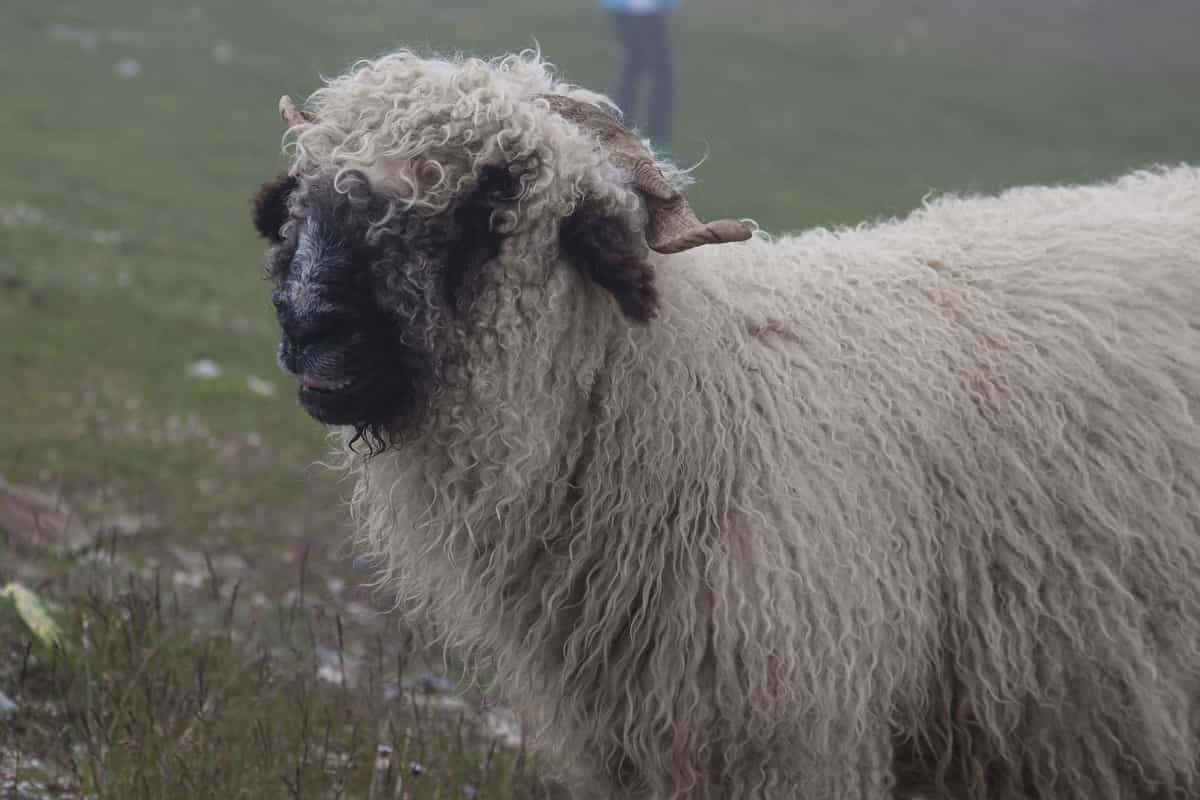
How to start sheep farming in Switzerland
Is sheep farming profitable in Switzerland?
There are different factors to consider in whether sheep farming is profitable in Switzerland. The cost of land and the price of wool are two important factors. The time and labor required to care for sheep must be considered. Assuming that the cost of land and wool is favorable, sheep farming can be quite profitable in Switzerland. The country’s climate is well-suited for raising Sheep, and there is a strong demand for Swiss wool. Swiss wool is known for its high quality and is used in various products, including clothing, carpets, and upholstery.
Farmers must also manage the grazing pasture to remain healthy and productive. There are over 500,000 sheep in Switzerland, making it one of the country’s most important agricultural industries. Switzerland’s Sheep are mostly raised for their wool, which is used to make various products. While most of Switzerland’s Sheep are raised in the Alps, there are also many sheep farms in the Swiss Plateau.
In recent years, organic and sustainable sheep farming demand practices have been increasing. Sheep farming requires a significant amount of time and labor. Farmers must be prepared to care for their flock daily, including feeding, watering, and exercising the Sheep. Additionally, farmers must know shearing techniques and lambing procedures. However, if farmers are willing to put in the time, sheep farming can be a very rewarding experience.
In case you missed it: How to Start Goat and Sheep Farming in United Arab Emirates (UAE): A Stall Feed Guide for Beginners
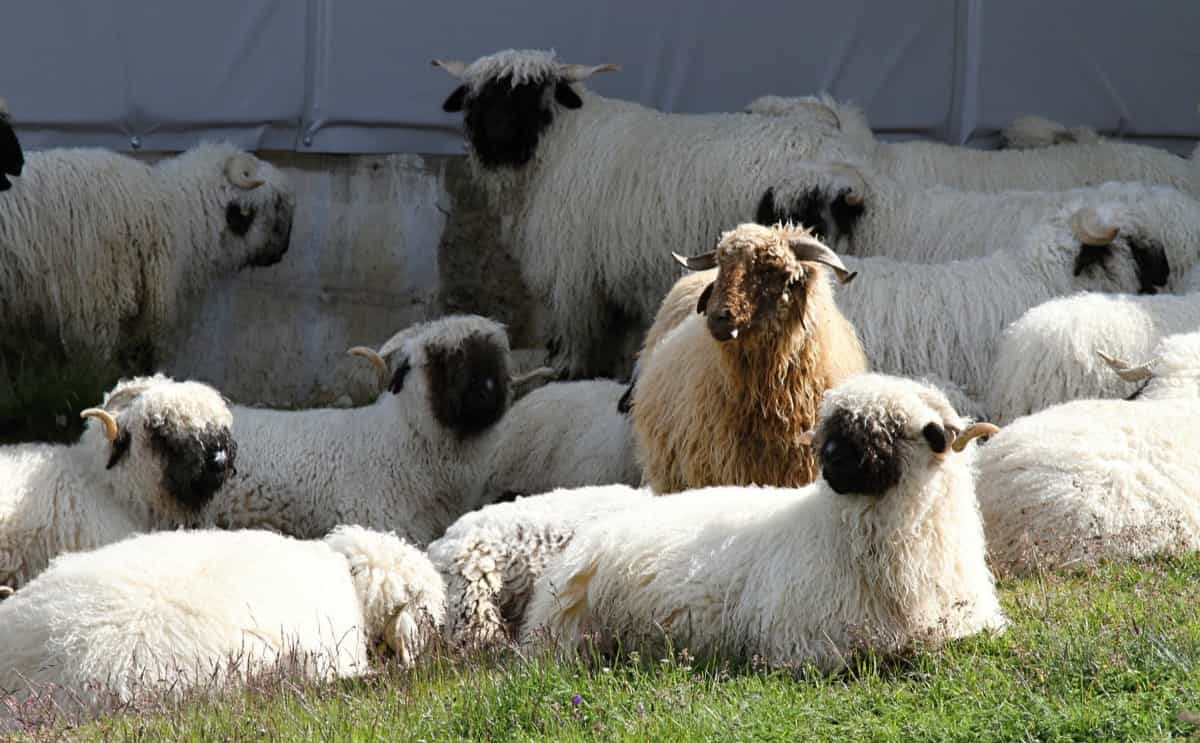
Zero grazing sheep farming in Switzerland
In Switzerland, there is a type of sheep farming known as “zero grazing.” This involves keeping the Sheep in a confined area, such as a pen or shed, and providing them with all the necessary food and water. The main benefit of sheep farming is that it reduces the risk of disease transmission between Sheep and other animals. It can also help keep the Sheep healthy and improve their wool quality.
Sheep farming for beginners in Switzerland
- Sheep farming is a popular agricultural industry in Switzerland, and beginners can find plenty of resources to help them get started.
- The main step is to decide what type of Sheep you want to raise. There are many Sheep breeds, each with its unique characteristics. Do some research to find the breed that best suits your needs.
- Once you’ve chosen your breed, you’ll need to acquire land to raise your Sheep. Sheep require plenty of space to graze and roam, so ensure you have enough land for your flock. You’ll also need to build an appropriate shelter for your Sheep, such as a barn or shed.
- Next, you’ll need to purchase some livestock. Baby lambs are typically the best for beginners, as they’re easier to care for than adult sheep. When purchasing lambs, be sure to choose healthy animals from reputable breeders.
- Once you have your flock, it’s important to care for them properly. This includes providing them with adequate food, water, and shelter from the elements. You’ll also need to monitor your Sheep for signs of illness or injury regularly and take action accordingly. With proper care and management, raising sheep can be a rewarding experience.
Tips for starting sheep farming in Switzerland
- Choose the right breed of Sheep. There are many breeds of Sheep, each with its characteristics. Do your research to find the right breed for your needs.
- Get the appropriate permits and licenses. You will want a permit from the canton where you plan to keep your Sheep.
- Find a good location for your farm. The location of your farm will need to provide adequate pastureland for your flock and access to water and shelter from the elements.
- Build or purchase the necessary shelters and fencing. Your sheep will need a place to sleep and stay dry during bad weather, so ensure you have adequate shelters on your property. Also, you will need to build fences around your pastureland to keep the Sheep contained.
- Buy or lease a flock of Sheep. Once you have all the necessary infrastructure, you can acquire a flock of Sheep. Be sure to quarantine any new animals before adding them to your existing flock.
- Train yourself and your staff on proper sheep husbandry techniques. Proper care and management of your flock are essential for success in sheep farming. Ensure you know how to properly care for your animals before starting.
- Develop a grazing plan for your pastureland. To maintain healthy pastures, developing a grazing plan that rotates the animals around different sections is important.
In case you missed it: How this Farmer Made 5 Lakh Profit from Sheep Farming – A Success Story
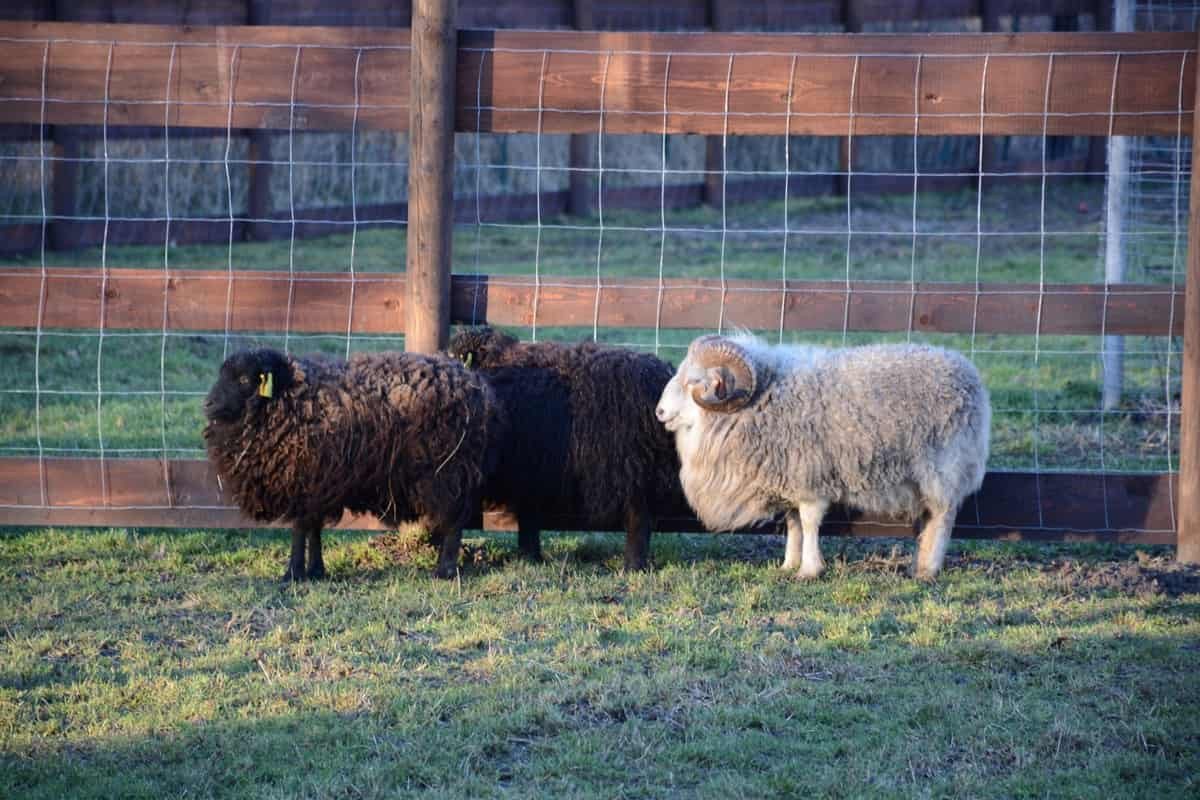
Sheep farming areas in Switzerland
There are many sheep farming areas in Switzerland. The Swiss Alps are a great place to farm sheep. Some many valleys and plains are perfect for sheep farming. The climate in Switzerland is perfect for raising Sheep. This makes it possible to raise Sheep all year round. Sheep thrive in Switzerland because of the clean air and the healthy grasses that grow there.
The Swiss Alps are home to many sheep farms. The climate and terrain of the Alps make it an ideal place for raising Sheep. Sheep farming in Switzerland dates back to the Middle Ages when shepherds would bring their flocks to graze in the high pastures during the summer months. There are over 200,000 sheep in Switzerland, and most are found in the canton of Valais.
How sheep are raised in Switzerland?
- In Switzerland, sheep are raised primarily for their wool and meat. It is an important part of the country’s agricultural economy.
- Switzerland has a long tradition of sheep farming, dating back to the Middle Ages. There are approximately 1.2 million Sheep in Switzerland, making up about 4% of the country’s total livestock population. Most Swiss sheep are found in the country’s Alpine regions.
- Most Swiss sheep are of the European variety known as Merino. They are well-suited to the Alpine climate and terrain and produce high-quality wool. Swiss sheep farmers greatly emphasize producing quality wool, which is used in various applications.
The benefits of sheep farming in Switzerland
There are many benefits to sheep farming, especially in Switzerland. The climate is perfect for sheep raising, and the landscape provides ample grazing opportunities. Sheep provide high-quality wool and meat, which are both in demand internationally. Swiss sheep farmers can take advantage of these markets and produce some of the world’s finest wool and meat products.
Sheep farming also has a positive impact on the environment. Sheep graze on grasslands, which helps to keep these areas healthy and productive. In addition, sheep manure is an excellent natural fertilizer that can improve soil health.
Sheep farming types in Switzerland
- Extensive sheep farming is the traditional type of sheep farming, where sheep graze freely on large pastures. This type of sheep farming is still common in many parts of Switzerland, especially in the Alps.
- Intensive sheep farming is a more modern type of Sheep, where sheep are kept in smaller fields and given more supplemental feed. This type of sheep farming is more common in the lowlands of Switzerland.
What kind of sheep are in Switzerland?
There are three main types of Sheep in Switzerland: the Swiss White, the European Brown, and the Alpine. The Swiss White is the most common type of Sheep in Switzerland. It is a dual-purpose breed, which is raised for meat and wool. The European Brown is also a dual-purpose breed but is not as common as the Swiss White. The Alpine is a mountain breed that is raised primarily for meat. Skudde and Schwarzbraunes Bergschaf are other important sheep breeds in Switzerland.
Sheep feeding management in Switzerland
In Switzerland, sheep are usually fed hay, silage, and concentrates. The type of feed and the amount given to each Sheep depends on the animal’s age, weight, and stage of production. Sheep are typically given hay or silage for roughage. Hay is dried grass cut and then left to dry in the field. It is then baled and stored for feeding during the winter months. Silage is fresh grass cut and stored in a sealed container without oxygen to prevent spoilage. It is also used as a winter feed for Sheep.
In case you missed it: Zero Grazing Sheep Farming: How to Start, Business Plan for Beginners
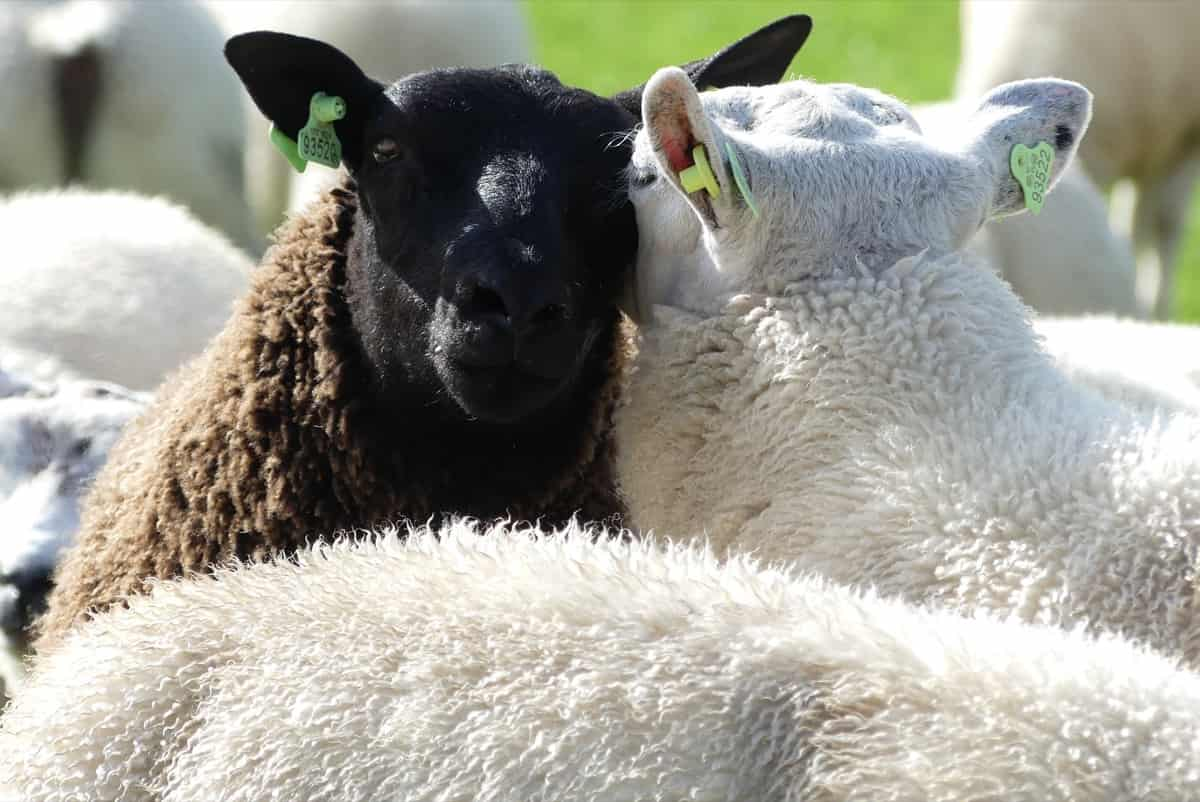
Concentrates are high-energy feeds that are fed in addition to hay or silage. They are often grain-based and may include soybeans, corn, barley, oats, or wheat. Concentrates help Sheep reach their peak body condition for lambing or wool production. They are also fed to ewes during lactation to help them maintain their condition and produce milk.
The amount of hay, silage, or concentrate fed to each Sheep will vary depending on the animal’s age, weight, and production stage. For example, a pregnant ewe will require more food than a non-pregnant ewe due to her increased energy needs. A growing lamb will also need more food than an adult sheep.
Sheep rearing business importance in Switzerland
The sheep-rearing business in Switzerland is a well-oiled machine, with farmers working together to ensure that their animals are healthy and productive. The Swiss climate is ideal for sheep farming, with cool summers and mild winters. This allows Sheep to graze year-round, producing high-quality wool and meat. Swiss farmers have developed innovative practices to make the most of their resources, resulting in a sustainable and profitable industry.
Sheep farming is an important part of Switzerland’s economy and culture. The country’s mountainous landscape would be unrecognizable without its furry residents, and the delicious cheese and meat produced by Swiss farms are enjoyed by people worldwide. If you’re considering starting a sheep farm in Switzerland, you’ll need to research and develop a solid business plan. But with hard work and dedication, you can join the ranks of successful Swiss sheep farmers.
Sheep marketing in Switzerland
In Switzerland, sheep are typically marketed directly to consumers or businesses. Farmers may also sell their sheep through cooperative arrangements or wool pools. Switzerland has a long tradition of sheep farming, dating back to the Middle Ages. Switzerland has an estimated 1.2 million sheep, with the vast majority raised for meat production.
It is an important part of the country’s agricultural sector, contributing over $400 million annually to the economy. While most Swiss sheep are raised for meat, a significant number are also kept for wool production. Switzerland is one of the world’s leading high-quality wool producers, with much of it being exported to other countries.
Commercial sheep farming in Switzerland
- Sheep have been farmed in Switzerland for centuries and play a main role in the country’s agricultural economy. There are over 300,000 sheep in Switzerland, with the majority being commercial sheep farms.
- The main breeds of sheep farmed in Switzerland are the Whitefaced Woodland and the Swiss Blacknose. These breeds are well-suited to the mountainous landscape and provide high-quality wool and meat.
- Switzerland’s climate is ideal for sheep farming, with cool summers and mild winters. The Alps also provide natural protection from predators.
- Due to the high demand for wool and meat, commercial sheep farms in Switzerland are well-established and highly efficient. The average farm size is around 500 animals, with many farms using modern technology and management practices to maximize production.
- The quality of Swiss wool is among the best in the world due to the healthy diet and clean environment that Sheep enjoy on Swiss farms.
In case you missed it: 16 Key Rules for Effective Sheep Farm Management: From Planning to Reduce Production Cost
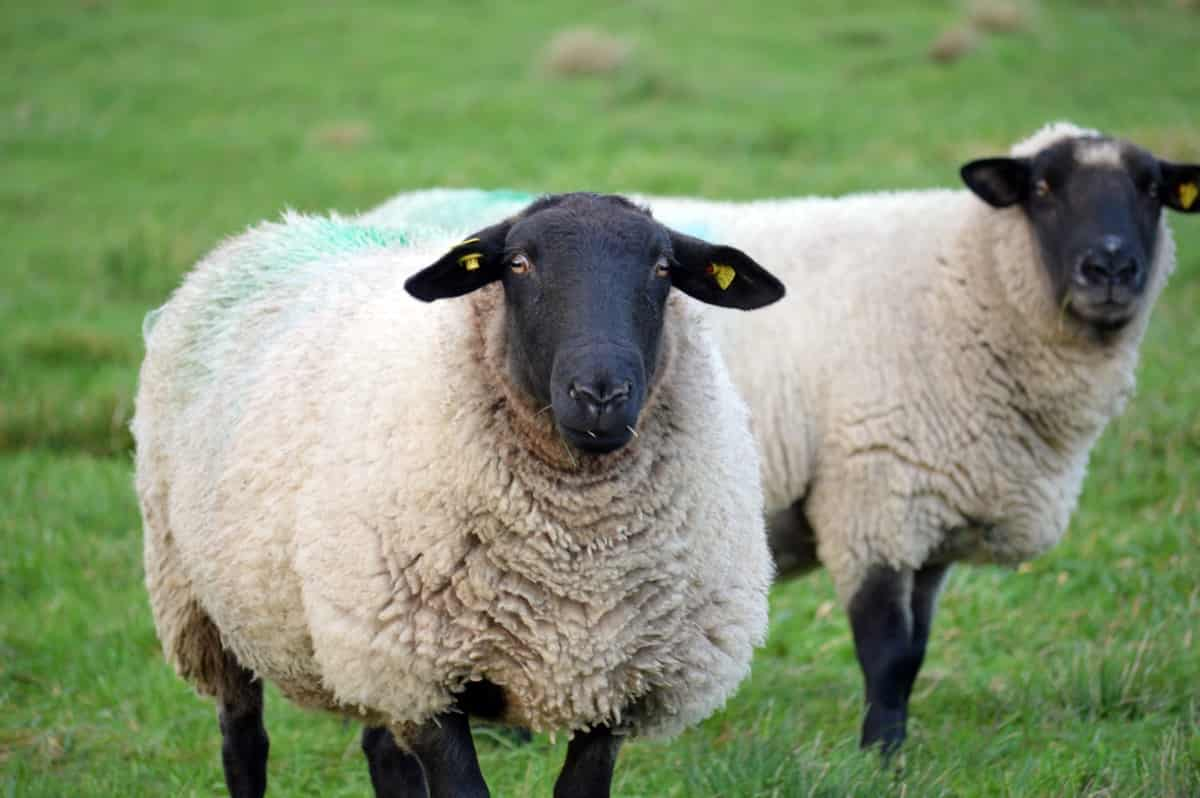
Steps to start a sheep farming business in Switzerland
- Decide what type of sheep farming business you want to start. Switzerland has three main types of sheep farms: dairy, wool, and meat. Each type of farm has its own unique set of requirements, so it is important to select the right one for your business.
- Acquire the necessary land and infrastructure. You will need to purchase or lease farmland and build pens, fences, and other structures required for raising Sheep.
- Purchase the necessary equipment. This includes tractors, plows, hayracks, and sheep-handling equipment.
- Obtain the required permits and licenses from the Swiss government. Depending on the type of farm you are operating, you may need to obtain different permits and licenses.
- Hire staff and purchase animals. Once you have all the necessary equipment and permits, you can start hiring employees and purchasing animals for your farm.
Sheep farming problems in Switzerland
Although sheep farming is an important part of the Swiss economy, it has faced some problems recently. One of the biggest problems is the declining demand for wool. In response, farmers have been trying to produce more meat and dairy products from their sheep. However, this has led to overgrazing in some areas, causing environmental damage. Another problem is the spread of diseases such as foot-and-mouth disease and scrapie. These diseases can be controlled by vaccination, but this is expensive and sometimes difficult.
The future of sheep farming in Switzerland
The future of sheep farming in Switzerland is looking bright. The sheep farming industry has adapted to the changing times and continues to produce high-quality wool and meat. Many new technologies are being developed to help sheep farmers in Switzerland become more efficient and productive. The Swiss government also supports the sheep industry and invests in research and development to ensure the sector remains strong.
Sheep farming challenges in Switzerland
Sheep farming in Switzerland faces several challenges. The most important one is the high cost of land. Small farmers can no longer afford to keep their sheep, and large companies are buying up farmland. This leads to the consolidation of sheep farms and the loss of traditional knowledge. The Swiss sheep farming industry faces several significant challenges. Firstly, the country’s mountainous terrain makes it difficult to graze Sheep.
This results in high costs for farmers transporting feed to their animals. Secondly, the climate in Switzerland is harsh, with cold winters and hot summers. This can lead to health problems for Sheep, meaning farmers must spend more time caring for their animals. Finally, the Swiss government imposes strict environmental regulations on sheep farms, which add to the costs of running a farm. Another challenge is the changing climate.
Warmer winters mean that Sheep no longer need to be brought down from the mountains, but this also means that there is less snow for them to graze on in the winter. Drought conditions in the summer are becoming more common, making it difficult to find enough fodder for the Sheep. Most Swiss farmers are over 60 years old, and their children often do not want to continue the family business. This means that many sheep farms will disappear in the next few years unless something is done to encourage young people to take them over.
In case you missed it: How to Start Sheep Farming From Scratch: A Detailed Guide for Beginners
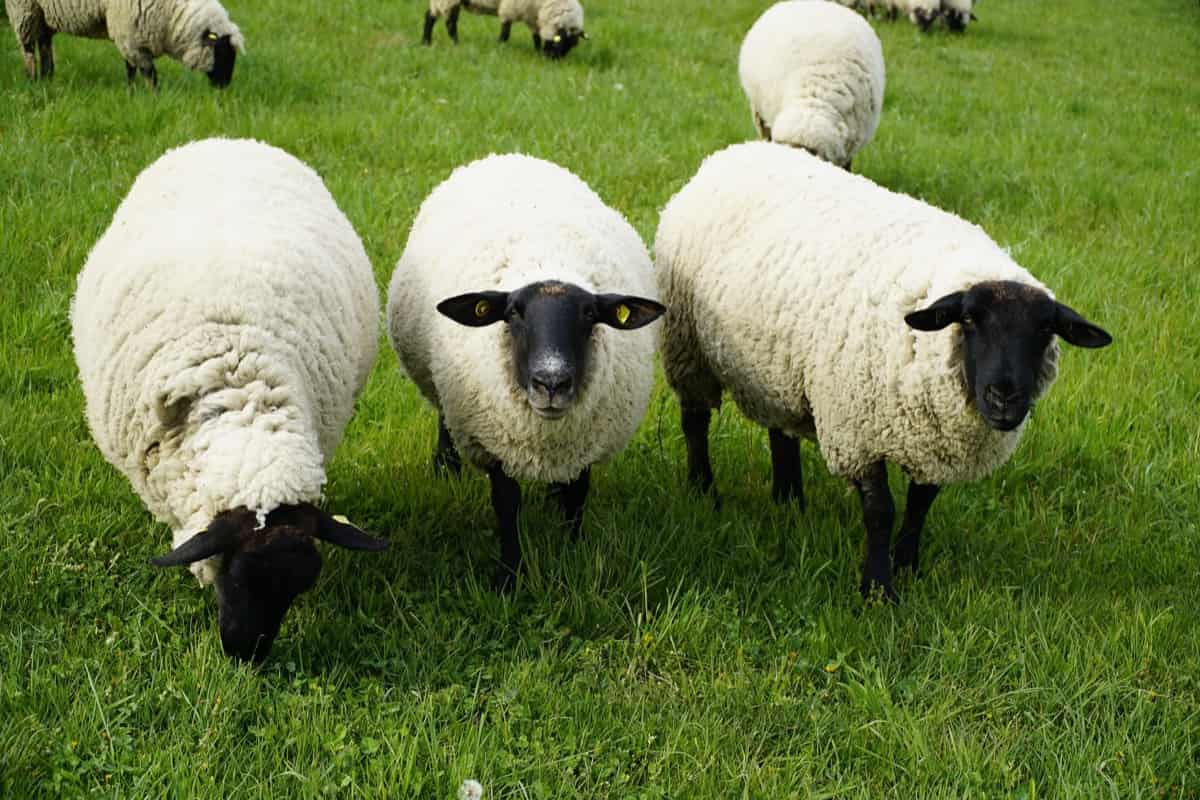
Conclusion
Sheep farming is raising and keeping Sheep for their wool, milk, and meat. Sheep are versatile animals and can be used for various purposes. In Switzerland, sheep are primarily raised for their wool. The Swiss climate is well-suited for sheep farming, and the country has a long tradition of raising these animals. Today, Swiss sheep farmers continue to produce high-quality wool and meat that consumers worldwide prize.
- Types of Pesticides Used in Agriculture: A Beginner’s Guide
- Economical Aquaculture: A Guide to Low-Budget Fish Farming
- 15 Common Planting Errors That Can Doom Your Fruit Trees
- How to Make Houseplants Bushy: Effective Tips and Ideas
- Innovative Strategies for Boosting Coconut Pollination and Yield
- Pollination Strategies for Maximum Pumpkin Yield
- The Complete Guide to Chicken Fattening: Strategies for Maximum Growth
- Natural Solutions for Tulip Problems: 100% Effective Remedies for Leaf and Bulb-Related Issues
- Revolutionizing Citrus Preservation: Towards a Healthier, Greener Future
- Natural Solutions for Peony Leaf and Flower Problems: 100% Effective Remedies
- Maximizing Profits with Avocado Contract Farming in India: A Comprehensive Guide
- Natural Solutions for Hydrangea Problems: 100% Effective Remedies for Leaf and Flowers
- The Ultimate Guide to Choosing the Perfect Foliage Friend: Bringing Life Indoors
- From Sunlight to Sustainability: 15 Ways to Use Solar Technology in Agriculture
- The Ultimate Guide to Dong Tao Chicken: Exploring from History to Raising
- The Eco-Friendly Makeover: How to Convert Your Unused Swimming Pool into a Fish Pond
- Mastering the Art of Delaware Chicken Farming: Essentials for Healthy Backyard Flocks
- 20 Best Homemade Fertilizers for Money Plant: DIY Recipes and Application Methods
- How to Craft a Comprehensive Free-Range Chicken Farming Business Plan
- Brighten Your Flock: Raising Easter Egger Chickens for Beauty and Bounty
- How to Optimize Your Poultry Egg Farm Business Plan with These Strategies
- Subsidy for Spirulina Cultivation: How Indian Government Schemes Encouraging Spirulina Farmers
- Ultimate Guide to Raising Dominique Chickens: Breeding, Feeding, Egg-Production, and Care
- Mastering the Art of Raising Jersey Giant Chickens: Care, Feeding, and More
- Ultimate Guide to Raising Legbar Chickens: Breeding, Farming Practices, Diet, Egg-Production
- How to Raise Welsummer Chickens: A Comprehensive Guide for Beginners
- How to Protect Indoor Plants in Winter: A Comprehensive Guide
- Ultimate Guide to Grow Bag Gardening: Tips, Tricks, and Planting Ideas for Urban Gardeners
- Guide to Lotus Cultivation: How to Propagate, Plant, Grow, Care, Cost, and Profit
- Agriculture Drone Subsidy Scheme: Government Kisan Subsidy, License, and How to Apply Online
- Ultimate Guide to Raising Araucana Chickens: Breed Profile, Farming Economics, Diet, and Care
- Bringing Hydroponics to Classroom: Importance, Benefits of Learning for School Students
- Ultimate Guide to Raising Polish Chickens: Breed Profile, Farming Economics, Diet, and Care
- Ultimate Guide to Raising Australorp Chickens: Profile, Farming Economics, Egg Production, Diet, and Care
- Silkie Chicken Farming: Raising Practices, Varieties, Egg Production, Diet, and Care
- Sussex Chicken Farming: Raising Practices, Varieties, Egg Production, Diet and Care